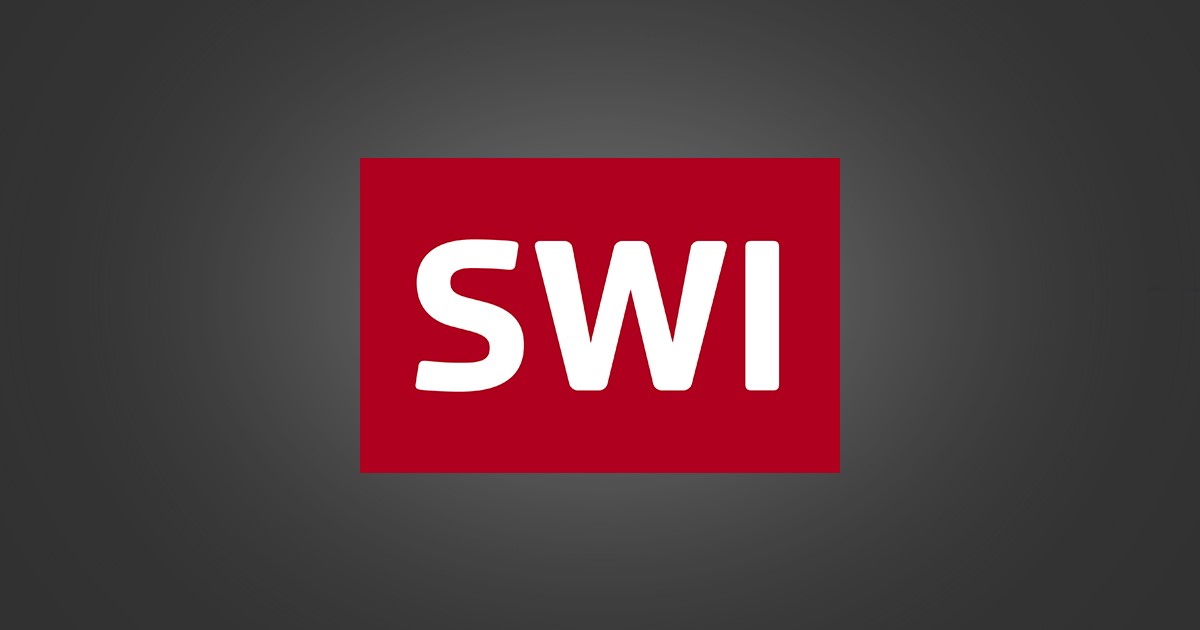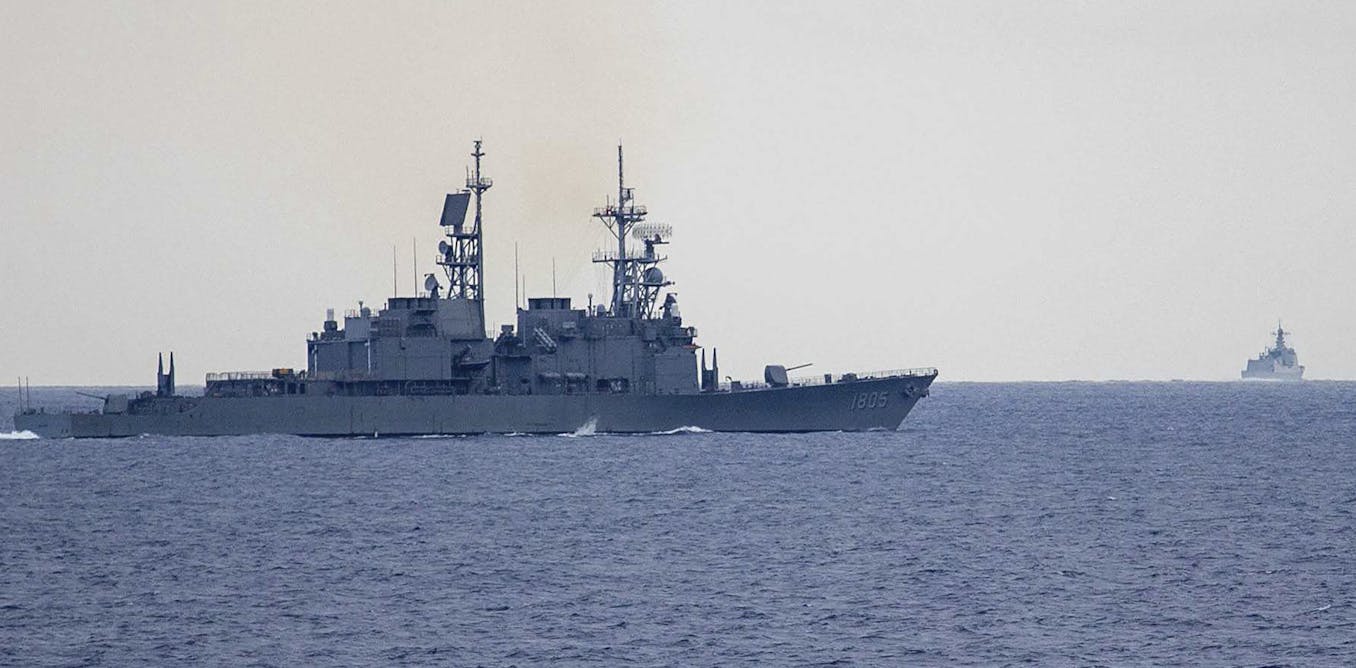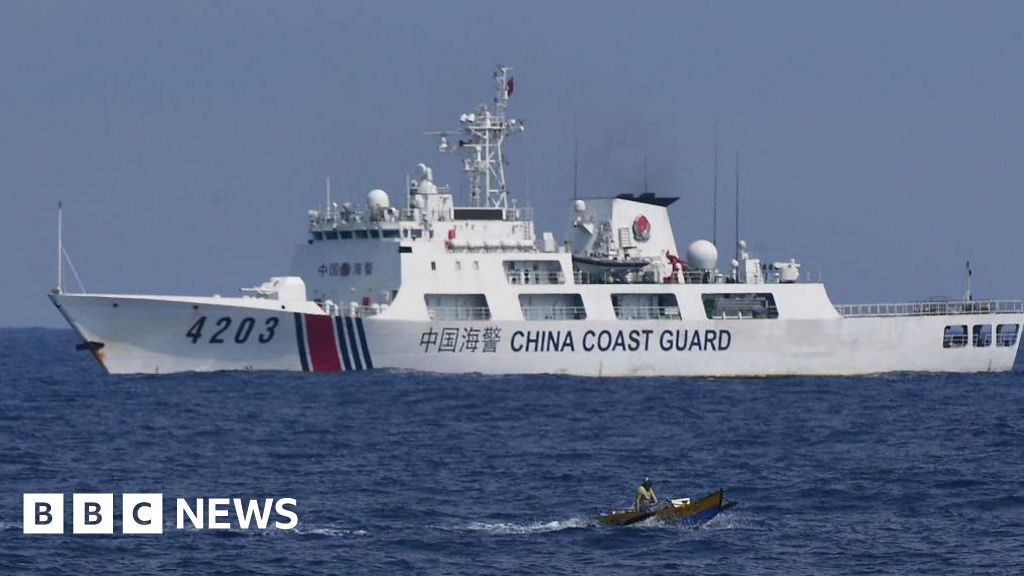- 601 Posts
- 157 Comments

 3·7 days ago
3·7 days agoWhat about cleaning all yards? This ‘the West bad, China bad okay’ stance is dehumanising and ignorant. [Edit typo.]

 2·7 days ago
2·7 days agoI posted this elsewhere already, but it also fits here goven many of the posts in this thread: It is not just about data/privacy concerns (which are underestimated imo, as China pursues an own agenda with collecting your data through Chinese tech) and ‘unfair’ subsidies, but about gross human rights violations.
In short, some parts of the cheap Chinese cars are made in concentration camps where people are forced to work under catastrophic conditions.

 1·16 days ago
1·16 days agoWhat is a good source for information on China?

 4·17 days ago
4·17 days agoThese are not marketing but training materials offering authoritarian principles in areas such as law enforcement, journalism, legal issues, space technologies, and many other topics, to build and maintain a totalitarian regime as China’s authoritarian capitalism model. It’s for the benefit of a few, while the people’s freedoms are suppressed.
Read the whole report.

 2·17 days ago
2·17 days agoCorrected, thanks. It’s no bear initiative :-) 🐼

 6·23 days ago
6·23 days ago@trevron, It’s good practice to name source. Read my other post in this thread on the same topic citing another source, and feel free to post sources you deem more reliable.
[Edit typo.]

 5·23 days ago
5·23 days agoUkraine accuses Russia of intensifying chemical attacks on the battlefield (February 2024)
Ukraine accused Russia […] of using toxic chemicals in more than 200 attacks on the battlefield in January alone, a sharp increase in what it said were recorded instances of their use by Russian forces since they invaded two years ago.
CS gas […] is banned on the battlefield by the international Chemical Weapons Convention which states in Article 1: “Each State Party undertakes not to use riot control agents as a method of warfare.”
[…] The Ukrainian general staff said: “815 cases of the use of ammunition loaded with toxic chemicals by the Russian Federation were recorded. Of these, only in January 2024 – 229 cases.”

 8·23 days ago
8·23 days agoThe Nato expansion issue is far to simplistic. Nato doesn’t expand itself. All Nato members join this alliance voluntarily. Finland, for example, has been committed to neutrality for 80 or so years and joined Nato only after Russia’s full-scale invasion of Ukraine.
Neutrality is fine in a world where everyone -especially your neighbours- respect democratic values and human rights. If this isn’t the case, countries seek alliances. (We have a similar situation in the Asia-Pacific region, where countries seek to establish alliances following China’s increasingly aggressive behaviour.)
The ‘problem’ isn’t Nato -that’s indeed Russian propaganda- but the fact that Russia failed so far to develop democratic structures. The aggressor here is Putin’s dictatorship.

 7·26 days ago
7·26 days agoYes. We need human responsibility for everything what AI does. It’s not the technology that harms but human beings and those who profit from it.

 3·1 month ago
3·1 month agoNo Gaza ceasefire until Israel war aims achieved, Netanyahu says
His [Israeli Prime Minister Benjamin Netanyahu’s] statement comes after US President Joe Biden announced Israel had proposed a three-stage plan to Hamas aimed at reaching a permanent ceasefire.

 2·1 month ago
2·1 month agoYou wouldn’t trust the Chinese supplier (or any supplier). You’d go to the bauxite shipment company and let them register with the network, you’d send independent auditors to their premises, very much as we do it with ibdependent audits nowadays.
We do need to physically access the premises across the supply chain to verify that ‘on-chain personas’ reflect their ‘real’ identities. But no single authority can control the data, we can be quite sure that all transfers of ownership across the supply chain have been authorized by their controllers. Compared to centralized systems, the blockchain provides us a much higher level of transparency and certainty over the fidelity of the information.

 3·1 month ago
3·1 month agothere’s no way tovtrack where resources, material, items come from, who made them
Independent audits are done -they are very common in many industry for a variety of reasons- and they work if done properly.
We could even track the provenance of each material through a trustless system like a blockchain to guarantuee a high level of credibility and transparency, just to name a relatively new technology. This is done already.

 6·1 month ago
6·1 month agoThey have been already managing that for a long time. Independent audits are common - except in a few countries.

 1·1 month ago
1·1 month agoThat’s strange. I can see the video at the top of the page, just before the text begins.

 6·1 month ago
6·1 month agoIn addition to the other comments, the EU is considering to alter its decision-making process and implementing a majority vote (at the moment every single counrty must agree to a decision). That could significantly reduce the risks brought by countries like Hungary and Slovakia.

 2·1 month ago
2·1 month agoWhat do we understand by genocide?
The Encoclopedia Britannica says:
Genocide, the deliberate and systematic destruction of a group of people because of their ethnicity, nationality, religion, or race. The term, derived from the Greek genos (“race,” “tribe,” or “nation”) and the Latin cide (“killing”) …
Tibetan children are separated from their families at a very young age and sent to state-run boarding ‘schools’ where they have to complete a “compulsory education” curriculum in the Mandarin Chinese language, with no access to traditional or culturally-relevant learning.
Forced sterilization of Tibetan women.
Individuals advocating for Tibetan language and education are persecuted.
Rounding up hundreds of thousands of innocent Tibetans, Uyghurs, and other minorities in military-style reeducation camps where they are forced to work.
More can be found, for examples, in the report on 100 atrocities of CCP in Tibet (pdf)
There’s is many more across the web.

 7·1 month ago
7·1 month agoForced labour in Chinese prisons isn’t limited to Xinjiang, nor to the car industry. A lot products we use in Europe and North America and elsewhere around the globe are made by Chinese prisoners forced to work under catastrophic conditions.
There is strong evidence for this provided by many independent sources, among them a documentary by Arte (a French-German media outlet). If interested:
Forced Labour - SOS from a Chinese Prisoner – (documentary, 95 min.)
A desperate cry for help written in Chinese was discovered in a pregnancy test sold in France and made in a Chinese factory. It revealed a hidden world of Chinese prison-companies where prisoners are forced to work for 15 hour days manufacturing products for export. This documentary tries to find out who wrote the letter.
(And, yes, prison labour exists also in the U.S., and it is as evil, but this doesn’t make the autocratic Chinese government any better.)

 2·2 months ago
2·2 months agoThis is maybe a good idea. What would an emoji analysis tell us about a network? 😃

 7·2 months ago
7·2 months agoIn addition to whst @taanegl already said:
Hong Kong’s Freedoms: What China Promised and How It’s Cracking Down
Before the British government handed over Hong Kong in 1997, China agreed to allow the region considerable political autonomy for fifty years under a framework known as “one country, two systems.”
In recent years, Beijing has cracked down on Hong Kong’s freedoms, stoking mass protests in the city and drawing international criticism.
Beijing imposed a national security law in 2020 that gave it broad new powers to punish critics and silence dissenters, which has fundamentally altered life for Hong Kongers.
Beijing had been chipping away at Hong Kong’s freedoms since the handover, experts say. Over the years, its attempts to impose more control over the city have sparked mass protests, which have in turn led the Chinese government to crack down further.
In the years following the 2014 protests, Beijing and the Hong Kong government stepped up efforts to rein in dissent, including by prosecuting protest leaders, expelling several new legislators, and increasing media censorship.



Do you say that to Europe, to China, or both?
It’s obvious you’re addressing only Europe. Why?
This is what I meant with ‘The West bad, China bad okay’. It’s hypocritical. It’s double-standards. It’s ignorant and disgusting.